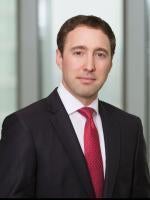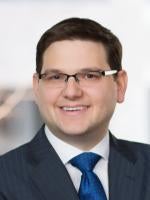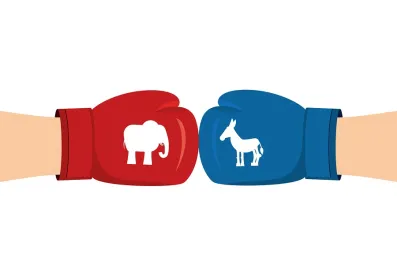As we approach the November 2018 midterm elections, we expect that we will once again see (i) an uptick in the volume of political calls; (ii) a reminder from the FCC that the TCPA applies to those calls (emphasizing that such calls are prohibited if made to cell phones without the consent of the called party, and that all prerecorded calls to cell phones or landlines must comply with certain identification and line release requirements); and (iii) a handful of new lawsuits filed against campaigns, candidates, and committees that allegedly failed to heed the FCC’s warning—all topics we have covered here before. Two recent decisions from a federal court in West Virginia pertaining to the 2016 election serve as a reminder that these lawsuits can linger long after the election ends
The October 4th and October 10th decisions in Hurley v. Messer, No. 16-cv-9949 (S.D. W. Va.) stem from a local Board of Education (“BoE”) election in 2016 that turned ugly when a BoE employee sent prerecorded phone messages attacking incumbent Joann Hurley. The calling campaign did not have its intended result: Hurley retained her seat, and as one of the recipients of the calls, she filed a putative class action asserting TCPA claims against the parties she believed were responsible.
After her initial complaint was dismissed last June, Plaintiff amended and added the two VoIP providers that provided the service platform for the phone calls (Callcentric and RingCentral) as well as the company that provided the voice actors (Fiverr). Plaintiff also added a Santa Clara, California company named Voicent, which she alleged “provided the autodialing” for the subject messages. These new defendants moved to dismiss, arguing that they could be neither directly nor vicariously liable.
The Court’s October 4, 2018 opinion addressed Callcentric, RingCentral, and Fiverr’s respective motions to dismiss. With regard to direct liability, Plaintiff sought to hold these new defendants directly liable based on the same (seemingly wholly conclusory) allegation that each “directly participated in, had knowledge and the right to control the illegal conduct alleged[.]” See 2018 WL 4854082 at *4. The court found that this conclusory allegation was insufficient to hold Fiverr, the voice acting company, liable but was sufficient to hold the VoIP providers directly liable. The court relied on FCC rulings and concluded that a defendant can be said to have “initiated” a phone call if it (i) takes the necessary steps to physically place the phone call or (ii) is so involved in placing the phone calls that it can be deemed to have initiated the call.
Applying these rulings, the court reasoned that providing an actor to read the content of an illegal message is not the equivalent of being “so involved in the placing of a specific telephone call as to be deemed to have initiated it” and thus there was nothing “supporting a claim Defendant Fiverr was involved in initiating or placing the call.” Id. This is not the first ruling to find that being a voice actor in a robocall is not sufficient to create potential liability under the TCPA: in 2016, the Eastern District of Missouri held that Mike Huckabee was not liable for TCPA violations merely because he was the “celebrity voice” on the offending calls.
As to the VoIP providers, the court found that this allegation, combined with the allegation that they provided the platform to place calls, were “sufficient to state a plausible claim that [the VoIP providers] offered a calling platform and ‘knowingly allowed its client(s) to use that platform for unlawful purposes[.]’” Id.
In a brief, subsequent opinion issued on October 10, the Court also addressed Voicent’s motion to dismiss. Adopting the authority and analysis set forth in its October 4 opinion with respect to Callcentric, RingCentral, and Fiverr, the Court held that, taking the allegations in the light most favorable to Plaintiff, she sufficiently stated a plausible claim that Voicent knowingly allowed the other Defendants to use its autodialing technology for an unlawful purpose.
With regard to vicarious liability (an issue we have covered extensively), in the October 4 opinion, the court held that the complaint failed to state a claim. The court found that Plaintiff’s simplistic and conclusory allegation that Callcentric, RingCentral, and Fiverr held Defendant Messer out “as their agent” and “ratified” Defendant Messer’s actions was insufficient to plead a claim under any of the three types of agency relationships courts and the FCC have found give rise to vicarious liability under the TCPA: (1) actual authority; (2) apparent authority; and (3) ratification. Rather, according to the court, “[e]ven construing [the Complaint] liberally, the closest Plaintiff c[ame] to alleging non-formal agency leads to a non-sensical hodgepodge of facts” that “through some sort of temporal and logical loop . . . CallCentric, RingCentral, and Fiverr had authorized Defendant Messer’s behavior and failed to cease his conduct.” See 2018 WL 4854082 at *6.
On October 10, the Court found that the same vicarious liability analysis applied to Voicent as applied to Callcentric, RingCentral, and Fiverr. As with those Defendants, Plaintiff had made only conclusory allegations that Voicent was vicariously liable, and thus the Court dismissed Plaintiff’s vicarious liability claim against Voicent, as well.
It remains to be seen whether other courts will follow Hurley’s analysis. If so, VoIP providers can expect to see more claims.






 />i
/>i
